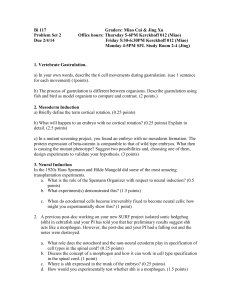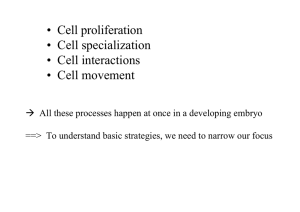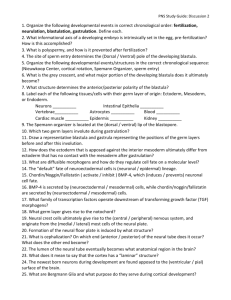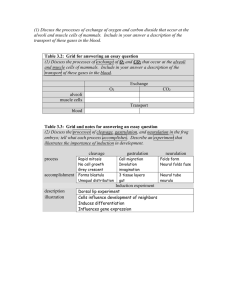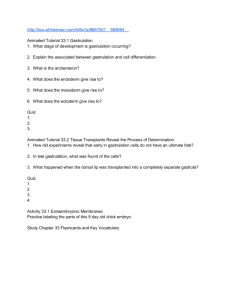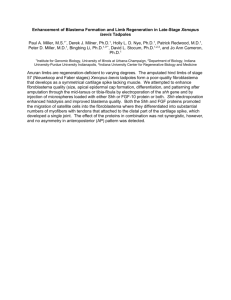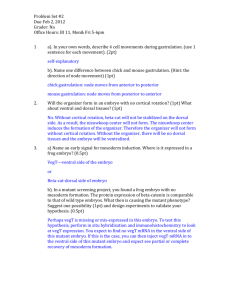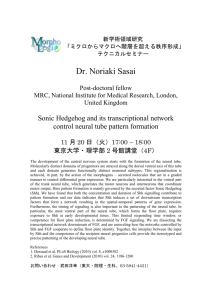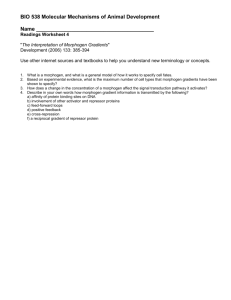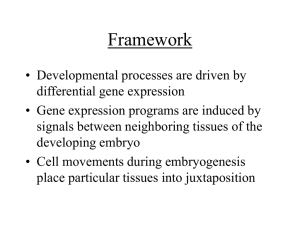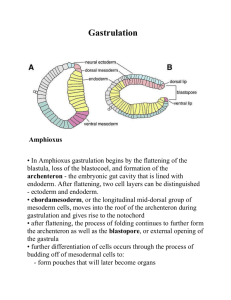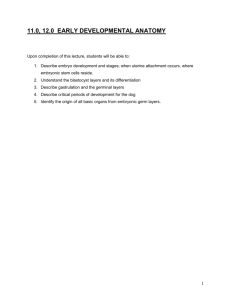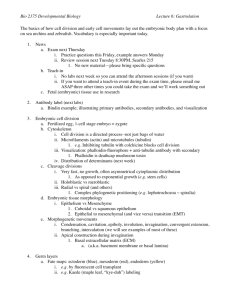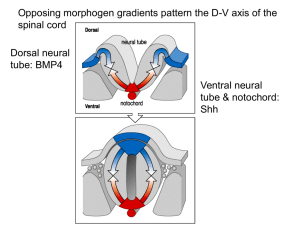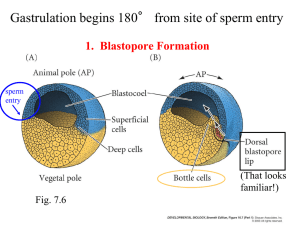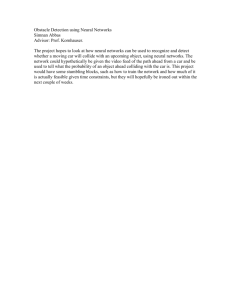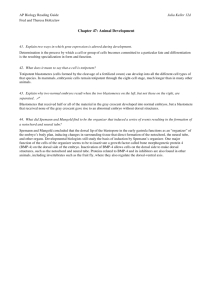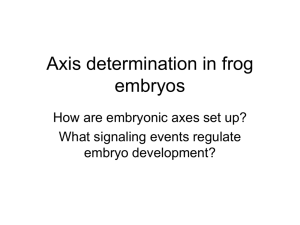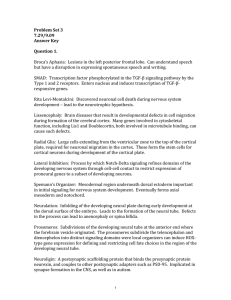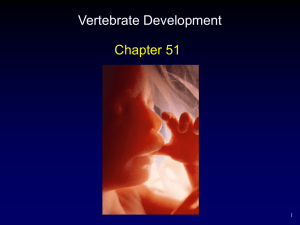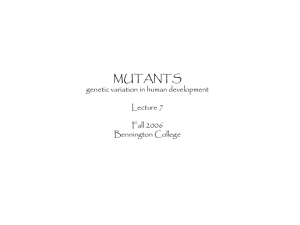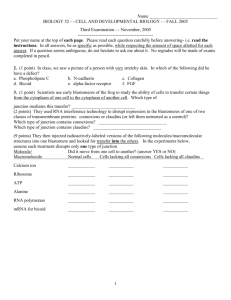Problem Set2
advertisement
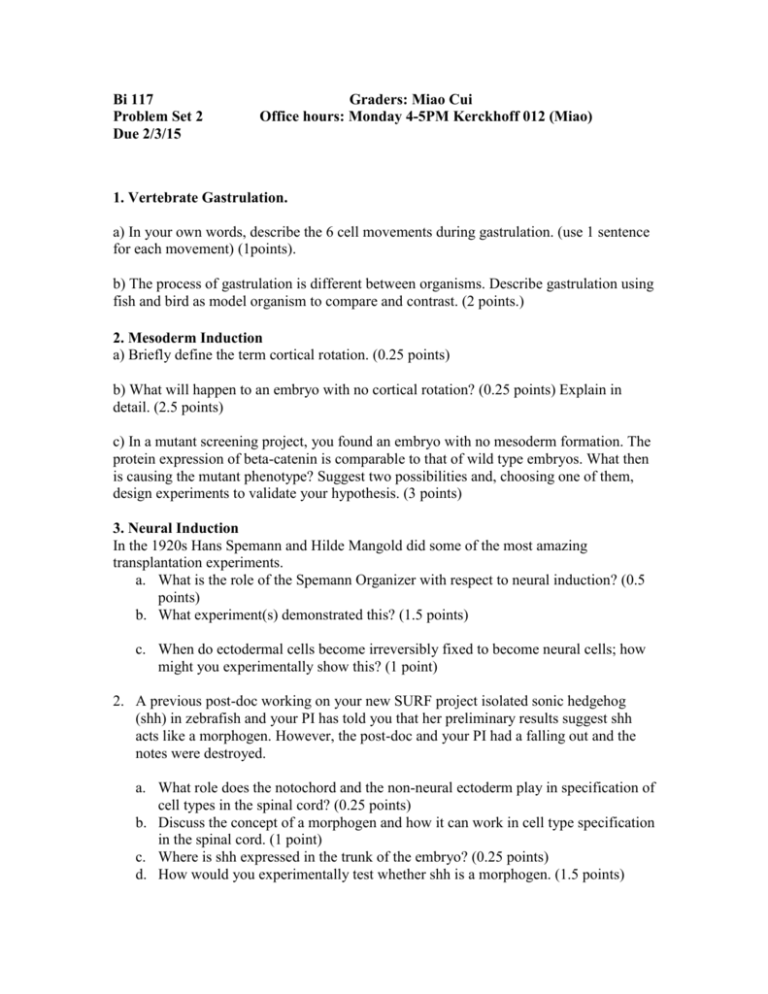
Bi 117 Problem Set 2 Due 2/3/15 Graders: Miao Cui Office hours: Monday 4-5PM Kerckhoff 012 (Miao) 1. Vertebrate Gastrulation. a) In your own words, describe the 6 cell movements during gastrulation. (use 1 sentence for each movement) (1points). b) The process of gastrulation is different between organisms. Describe gastrulation using fish and bird as model organism to compare and contrast. (2 points.) 2. Mesoderm Induction a) Briefly define the term cortical rotation. (0.25 points) b) What will happen to an embryo with no cortical rotation? (0.25 points) Explain in detail. (2.5 points) c) In a mutant screening project, you found an embryo with no mesoderm formation. The protein expression of beta-catenin is comparable to that of wild type embryos. What then is causing the mutant phenotype? Suggest two possibilities and, choosing one of them, design experiments to validate your hypothesis. (3 points) 3. Neural Induction In the 1920s Hans Spemann and Hilde Mangold did some of the most amazing transplantation experiments. a. What is the role of the Spemann Organizer with respect to neural induction? (0.5 points) b. What experiment(s) demonstrated this? (1.5 points) c. When do ectodermal cells become irreversibly fixed to become neural cells; how might you experimentally show this? (1 point) 2. A previous post-doc working on your new SURF project isolated sonic hedgehog (shh) in zebrafish and your PI has told you that her preliminary results suggest shh acts like a morphogen. However, the post-doc and your PI had a falling out and the notes were destroyed. a. What role does the notochord and the non-neural ectoderm play in specification of cell types in the spinal cord? (0.25 points) b. Discuss the concept of a morphogen and how it can work in cell type specification in the spinal cord. (1 point) c. Where is shh expressed in the trunk of the embryo? (0.25 points) d. How would you experimentally test whether shh is a morphogen. (1.5 points)
